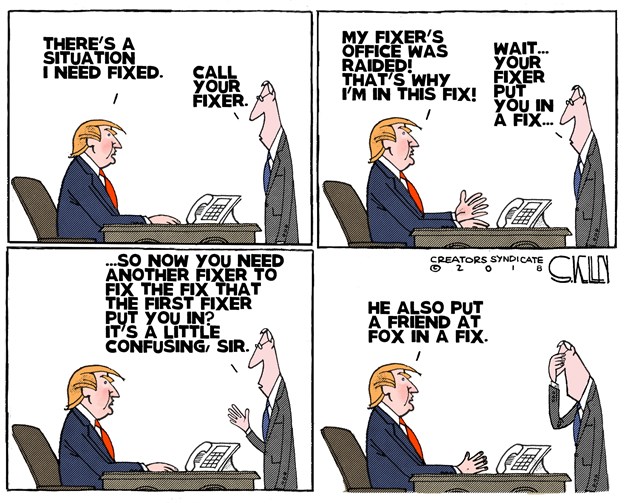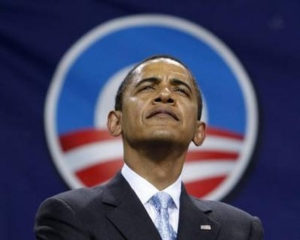 A group of evangelical leaders concerned about the future of evangelicalism, spurred by 80% of evangelicals having voted for Donald Trump in the last election, held a meeting recently at Wheaton College just outside Chicago.
A group of evangelical leaders concerned about the future of evangelicalism, spurred by 80% of evangelicals having voted for Donald Trump in the last election, held a meeting recently at Wheaton College just outside Chicago.
Whenever I see evangelical leaders concerned about unstinting support for Trump and the potential problem of having the Christian witness tied to him, I am usually encouraged. But I have my qualms about the political direction of some of Trump’s evangelical critics.
Those who have read my blog on any kind of a regular basis know that I have written often with my own concerns about the presidency of Donald Trump. I did my best during the Republican primaries to warn Christians about his character; he received the nomination regardless of my warnings and those of others with a much larger audience than mine.
My concerns continue as his thin-skinned egotism and history of immoral behavior (which has really never abated) lowers the dignity of the presidential office. Bill Clinton and Barack Obama did the same in their own respective ways.
Yes, Trump has made excellent judicial appointments that will hopefully reverse some trends, but I sincerely doubt if he knows any of those appointees who were recommended to him by a group of constitutionalists who see the dangers of an out-of-control judiciary.
Principle is in short supply with this president.

Christians are to stand for Scriptural fidelity and the purity of the Christian witness to the world. Neither are found in the character of the current occupant of the White House, and those with strong ties to him may eventually fall with him.
And I do fear that a fall is coming.
On the proverbial other hand, I have a similar fear with those who oppose Trump: that some of those who gathered at this meeting in Wheaton are not sufficiently grounded in Biblical precepts of government and policy, and they, in a similar fashion, are linking their ideas to the Christian witness to its detriment.
We’re informed by some that the younger generation of evangelicals don’t have the same concerns as the older generation, and that their cry is for “social justice.” Let it be known that I also believe in social justice, but the term has been so overused and misused (and you can feel free to apply over- and mis- to any other term you wish) that I shun using it myself.
If by social justice, one means that the inalienable rights God has given each person should be protected by government, then I am in agreement. The paramount inalienable right is that of life, which is why I am so supportive of the pro-life cause at both ends: unborn children and the elderly.
If by social justice, one means that no one should be treated differently due to external features such as skin color, again, you will find me on that side of the issue.
If, however, social justice is promoted as a semi-Marxist envy of those who “have” and is built on a bedrock of class conflict/warfare that seeks to take away from the haves to give to the have-nots, thereby classifying all “haves” as evil, then count me out. The history of the twentieth century was replete with those kinds of tyrannies, and they continue today regardless of the changes in leadership:

If social justice goes beyond the basic rights of all people regardless of color and insists on calling all white people evil (based on their color apparently) and foments an attitude of bitterness for wrongs both past and present, I will not be one of that number.
If it is true, as reported in a recent article, that 85% of black evangelicals identify with the Democrat party, I’m saddened. Why? Well, if you want to look historically, that was the party that defended both slavery and segregation. More recently, as the “champion” of minorities, it set up government programs (Great Society, anyone?) that have proved to be the catalyst for the destruction of the black family in America, leading to even greater degrees of poverty.
For evangelicals, in particular, the Democrats are the party that are wholesale on board with abortion on demand (which Planned Parenthood has always used to decimate minority communities), same-sex marriage, and, under the Obama administration, a large-scale attack on the religious liberties of Christian organizations who fail to fall in line with the “new morality.”
I want to ask my black brethren this: “How can you support a party that has set itself up in opposition to so much of what a Christian evangelical says he believes?” Democrats, in their present persona, are about as anti-Christian as a party can be.
Republicans give greater lip service to Biblical standards; their problem is hypocrisy. Yet, even with all that hypocrisy, there are some Republican officeholders who do remain faithful to their principles and their word. At least there’s some hope there, however slight.
 To my evangelical friends who give unyielding support for President Trump, I urge you not to be unthinking cheerleaders. Recognize the danger to the Christian witness when we give ourselves to a leader unconditionally.
To my evangelical friends who give unyielding support for President Trump, I urge you not to be unthinking cheerleaders. Recognize the danger to the Christian witness when we give ourselves to a leader unconditionally.
And by all means, don’t provide excuses for wrong behavior. Maintain your Biblical standard.
 To my evangelical friends who are tempted to go the way of political progressivism, please stop and think about the ramifications. When you ally yourself with a worldview that is fundamentally antithetical to Christian faith, you taint the faith as well.
To my evangelical friends who are tempted to go the way of political progressivism, please stop and think about the ramifications. When you ally yourself with a worldview that is fundamentally antithetical to Christian faith, you taint the faith as well.
One report, focused on one evangelical college (which will go unnamed) notes that 80% of the professors there voted for Obama in 2012. This is the president who made the greatest strides toward marginalizing Christian faith in American society. How anyone could have supported him is beyond my understanding.
I’m trying to be a voice of Christian reason here, holding fast to fidelity to Scripture and hoping to make both sides reconsider where they stand. It’s not easy or fun being in the middle.
I sincerely love all who are truly in Christ, no matter where they come out on the political spectrum. However, I am urging all to put Biblical principles ahead of politics. If we do, we might find we agree on more things than we imagined.
